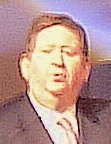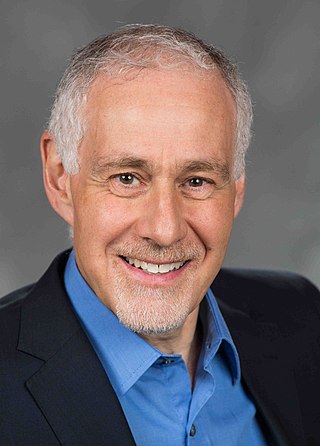Related Research Articles
The Association for Computing Machinery (ACM) is a US-based international learned society for computing. It was founded in 1947 and is the world's largest scientific and educational computing society. The ACM is a non-profit professional membership group, claiming nearly 110,000 student and professional members as of 2022. Its headquarters are in New York City.

Computing is any goal-oriented activity requiring, benefiting from, or creating computing machinery. It includes the study and experimentation of algorithmic processes, and development of both hardware and software. Computing has scientific, engineering, mathematical, technological and social aspects. Major computing disciplines include computer engineering, computer science, cybersecurity, data science, information systems, information technology, digital art and software engineering.
Software engineering is an engineering-based approach to software development. A software engineer is a person who applies the engineering design process to design, develop, maintain, test, and evaluate computer software. The term programmer is sometimes used as a synonym, but may emphasize software implementation over design and can also lack connotations of engineering education or skills.

Barry William Boehm was an American software engineer, distinguished professor of computer science, industrial and systems engineering; the TRW Professor of Software Engineering; and founding director of the Center for Systems and Software Engineering at the University of Southern California. He was known for his many contributions to the area of software engineering.

Peter Gabriel Neumann is a computer-science researcher who worked on the Multics operating system in the 1960s. He edits the RISKS Digest columns for ACM Software Engineering Notes and Communications of the ACM. He founded ACM SIGSOFT and is a Fellow of the ACM, IEEE, and AAAS.

Jack Joseph Dongarra is an American computer scientist and mathematician. He is the American University Distinguished Professor of Computer Science in the Electrical Engineering and Computer Science Department at the University of Tennessee. He holds the position of a Distinguished Research Staff member in the Computer Science and Mathematics Division at Oak Ridge National Laboratory, Turing Fellowship in the School of Mathematics at the University of Manchester, and is an adjunct professor and teacher in the Computer Science Department at Rice University. He served as a faculty fellow at the Texas A&M University Institute for Advanced Study (2014–2018). Dongarra is the founding director of the Innovative Computing Laboratory at the University of Tennessee. He was the recipient of the Turing Award in 2021.

Stuart Feldman is a computer scientist. He is best known as the creator of the computer software program make. He was also an author of the first Fortran 77 compiler, was part of the original group at Bell Labs that created the Unix operating system, and participated in development of the ALTRAN and EFL programming languages.
The World Wide Web has become a major delivery platform for a variety of complex and sophisticated enterprise applications in several domains. In addition to their inherent multifaceted functionality, these Web applications exhibit complex behaviour and place some unique demands on their usability, performance, security, and ability to grow and evolve. However, a vast majority of these applications continue to be developed in an ad hoc way, contributing to problems of usability, maintainability, quality and reliability. While Web development can benefit from established practices from other related disciplines, it has certain distinguishing characteristics that demand special considerations. In recent years, there have been developments towards addressing these considerations.
Software visualization or software visualisation refers to the visualization of information of and related to software systems—either the architecture of its source code or metrics of their runtime behavior—and their development process by means of static, interactive or animated 2-D or 3-D visual representations of their structure, execution, behavior, and evolution.
Brent Hailpern is a computer scientist retired from IBM Research. His research work focused on programming languages, software engineering, and concurrency.
Douglas Taylor "Doug" Ross was an American computer scientist pioneer, and chairman of SofTech, Inc. He is most famous for originating the term CAD for computer-aided design, and is considered to be the father of Automatically Programmed Tools (APT), a programming language to drive numerical control in manufacturing. His later work focused on a pseudophilosophy he developed and named Plex.
David J. Kuck, a graduate of the University of Michigan, was a professor in the Computer Science Department the University of Illinois at Urbana-Champaign from 1965 to 1993. He is the father of Olympic silver medalist Jonathan Kuck. While at the University of Illinois at Urbana-Champaign he developed the Parafrase compiler system (1977), which was the first testbed for the development of automatic vectorization and related program transformations. In his role as Director (1986–93) of the Center for Supercomputing Research and Development (CSRD-UIUC), Kuck led the construction of the CEDAR project, a hierarchical shared-memory 32-processor SMP supercomputer completed in 1988 at the University of Illinois.
The Ken Kennedy Award, established in 2009 by the Association for Computing Machinery and the IEEE Computer Society in memory of Ken Kennedy, is awarded annually and recognizes substantial contributions to programmability and productivity in computing and substantial community service or mentoring contributions. The award includes a $5,000 honorarium and the award recipient will be announced at the ACM - IEEE Supercomputing Conference.
Ravishankar K. Iyer is the George and Ann Fisher Distinguished Professor of Engineering at the University of Illinois at Urbana-Champaign. He is a specialist in reliable and secure networks and systems.
Joyce Currie Little is a computer scientist, engineer, and educator. She was a professor and chairperson in the Department of Computer and Information Sciences at Towson University in Towson, Maryland.
Bill Curtis is a software engineer best known for leading the development of the Capability Maturity Model and the People CMM in the Software Engineering Institute at Carnegie Mellon University, and for championing the spread of software process improvement and software measurement globally. In 2007 he was elected a Fellow of the Institute of Electrical and Electronics Engineers (IEEE) for his contributions to software process improvement and measurement. He was named to the 2022 class of ACM Fellows, "for contributions to software process, software measurement, and human factors in software engineering".

Alexander L. Wolf is a Computer Scientist known for his research in software engineering, distributed systems, and computer networking. He is credited, along with his many collaborators, with introducing the modern study of software architecture, content-based publish/subscribe messaging, content-based networking, automated process discovery, and the software deployment lifecycle. Wolf's 1985 Ph.D. dissertation developed language features for expressing a module's import/export specifications and the notion of multiple interfaces for a type, both of which are now common in modern computer programming languages.
Bernd Bruegge is a German computer scientist, full professor at the Technische Universität München (TUM) and the head of the Chair for Applied Software Engineering. He is also an adjunct associate professor at Carnegie Mellon University (CMU) in Pittsburgh.
References
- ↑ Briand, Lionel C., Sandro Morasca, and Victor R. Basili. "Property-based software engineering measurement." Software Engineering, IEEE Transactions on 22.1 (1996): 68–86.
- ↑ Vessey, Iris, Venkataraman Ramesh, and Robert L. Glass. "Research in information systems: An empirical study of diversity in the discipline and its journals." Journal of Management Information Systems 19.2 (2002): 129–174.
- ↑ Bertolino, Antonia. "Software testing research: Achievements, challenges, dreams." Future of Software Engineering, 2007. FOSE'07. IEEE, 2007.
- 1 2 "About Robert L. Glass". Personal web site. Archived from the original on September 14, 2010. Retrieved November 6, 2013.
Robert L. Glass (Bob) has meandered the halls of computing for over 50 years now, starting with a three-year gig in the aerospace industry (at North American Aviation) in 1954–1957, which makes him one of the true pioneers of the software field. That stay at North American extended into several other aerospace appearances (at Aerojet-General Corp., 1957–1965) [sic] and the Boeing Company, 1965–1970 and 1972–1982). His role was largely that of building software tools used by applications specialists. I
- ↑ Robert L. Glass (2006) Software Creativity 2.0. p. v
- ↑ Robert L. Glass (2003) Facts and Fallacies of Software Engineering. p. 190
- ↑ "Journal of Systems and Software Editorial Board". Journal of Systems and Software. Elsevier B.V. Retrieved April 9, 2014.
- ↑ IEEE Software 26.6 (2009): 96–96.
- ↑ Joseph Feller (2005) Perspectives on Free and Open Source Software. p. 516
- ↑ "Robert L. Glass". Citation for ACM Fellow. Retrieved November 6, 2013.
- ↑ Darroch, Fiona (July 2006). "ACM fellow profile: Bob Glass". SIGSOFT Software Engineering Notes. 31 (4): 2–6. doi: 10.1145/1142958.1150033 . S2CID 26827081.
- ↑ Glass, R. L. (2000). The Sociology of Open Source: Of Cults and Cultures. IEEE Software, 17(3), 104–105
- ↑ "Robert L. Glass". The DBLP Computer Science Bibliography. Schloss Dagstuhl – Leibniz Center for Informatics and the University of Trier. Retrieved April 9, 2014.